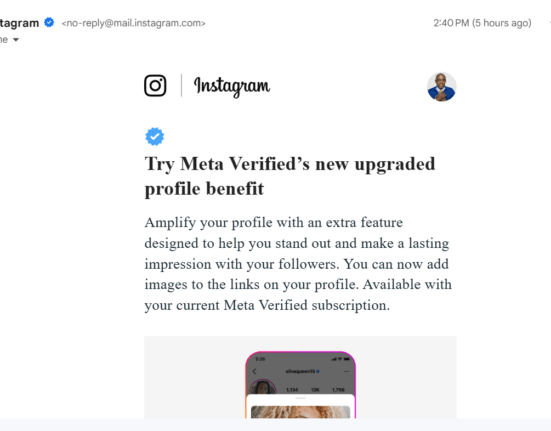The topic of diversity, equity, and inclusion (DEI) is a hot one today, and for good reason. In some circles, DEI efforts face backlash. More than half of workers in one Pew Research survey said they support an increase in DEI, others are neutral, and still others say DEI is a bad thing. And some companies are even eliminating DEI roles altogether.
Yet there is still so much work to be done — and so many opportunities to achieve tangible progress beyond meeting quotas or ticking checkboxes. According to Denise Hamilton, inclusion strategist and author of Indivisible, it’s about cultivating a deep, profound understanding of what brings us together.
In her recent interview with Ramon Ray, Hamilton passionately shared insights into operationalizing DEI goals, moving from short-term gains to a long-term commitment, and the transformative power of embracing our interconnectedness. “What I want people to do is replace these subordinate lesser goals with a bigger goal — to be indivisible,” says Hamilton. “And what does that mean? To me, it means that we have a deep, profound understanding of our interconnectedness.”
If you’re looking to increase DEI in your workplace and lead the movement toward positive change, read on for Hamilton’s insights.
Watch the entire episode on YouTube or listen to our podcast.
Operationalizing DEI Goals
Hamilton challenges the status quo of setting lesser, easily achievable goals in favor of a more ambitious pursuit — to be indivisible. Drawing parallels with being a renter versus an owner, she emphasizes the need for organizations to invest in the long-term viability of their assets. Moreover, she calls out the extractors, those seeking temporary value, and advocates for a collective responsibility.
In many major corporations, DEI initiatives look more like tactical strategies than focused efforts to enact change. Meeting diversity percentages and hiring minorities might look good on paper, but how does it look in the day-to-day of running a business?
Hamilton even stresses that true inclusion extends beyond just being in the room. Conversely, she emphasizes the importance of allowing voices to be heard, ensuring individuals aren’t confined to the bottom rungs of the organizational ladder. She also rejects a one-size-fits-all approach that sacrifices personal values.
Shifting from Punishment to Possibility
Hamilton challenges the prevalent narrative surrounding DEI, urging a shift from punishment to possibility. Additionally, she believes in the infinite resources available, emphasizing the need to break free from a culture of extraction. Beyond policies and regulations, DEI is not a PR stunt but a genuine commitment to creating inclusive spaces.
At the heart of Indivisible is the concept of recognizing our ability to impact the world in powerful ways. Hamilton challenges the prevailing hopelessness and helplessness, urging individuals to acknowledge their potential. Also, drawing parallels with historical DEI pioneers like Harriet Tubman, she questions why, with more resources and education.We live beneath our capabilities, advocating a shift from punishment to the pursuit of creative and innovative solutions.
So, what if we prioritize DEI? How about, as entrepreneurs, we make a point of creating DEI policies that are everyone’s shared responsibility and not just a way to meet key performance indicators (KPIs)? Here at Zone of Genius, we believe wholeheartedly in the importance of DEI in and out of the workplace. Along with Hamilton’s recommendations, here are our tips for establishing and making DEI efforts stick.
How to Incorporate DEI and Become Indivisible
- Commit to prioritizing DEI: Make a conscious decision to prioritize DEI as a fundamental aspect of your business values. Shift the focus from using DEI efforts as a checkbox exercise for meeting KPIs; instead, view it as a shared, holistic commitment to fostering a diverse and inclusive workplace.
- Educate yourself about DEI: Knowledge is power. The more you understand DEI, the better you can see its value. Not sure where to begin? Then, start with books and other resources from thought leaders like Hamilton.
- Share what you know. Educate your team, partners, and vendors about the importance of DEI, fostering a culture of understanding and inclusivity. Certainly, communication is key to ensuring everyone is on board. Implement regular DEI training sessions and workshops to enhance your workforce’s awareness, sensitivity, and understanding.
- Gather employee feedback: Create channels for employees to provide feedback on DEI initiatives, fostering a culture of openness and continuous improvement. Basically, you should invite employees to participate actively in DEI efforts.
- Establish accountability mechanisms: Feedback is only helpful if you act on it. As you invite employees to contribute to the conversation and incorporate changes, have a system for staying accountable to your goals. Also, regularly evaluate the effectiveness of your DEI efforts and be willing to make adjustments to better align with evolving goals and industry best practices.
- Revamp communications: Pay attention to the language used in communications, policies, and procedures to ensure inclusivity and avoid unintentional biases. Even more, you can create training materials and offer resources to get everyone on the same page.
- Diversify recruitment practices: Could your talent scouting use an overhaul? Actively diversify your recruitment practices to ensure a broader pool of candidates and fair representation at all levels.
- Foster inclusive leadership: DEI starts at the top. Encourage and cultivate inclusive leadership and decision-making practices, where leaders actively promote diversity and create an environment where every voice is valued. Furthermore, remember, you’re fostering a culture where leaders are responsible for driving and sustaining inclusive practices — not simply saying they have a DEI plan.
- Celebrate diversity: Acknowledge and celebrate diversity within your organization, recognizing the unique contributions of individuals from varied backgrounds. Share success stories of how DEI initiatives have positively impacted the organization, inspiring others to participate and contribute actively.
- Integrate DEI into company culture: Make DEI an integral part of your company culture, ensuring it permeates every aspect of your organization’s ethos. Additionally, the dialogue from hiring practices to regular DEI discussions and training sessions should be ongoing.
We’re All Responsible for Diversity, Equity, and Inclusion
Indivisible challenges individuals and organizations to move beyond rhetoric and embrace a mindset shift. Hamilton’s call for ownership, innovation, and true inclusion is a powerful reminder that DEI is not a checkbox; it’s a commitment to creating a society that values every individual’s unique contributions.
Adds Hamilton, “I hope that my book empowers people and pushes them and reminds them who they are, that they can do hard things.”
Get your copy of Indivisible on Hamilton’s website to delve deeper into the DEI conversation.
Related Read: People, Not Technology, Drive True Innovation Says Lisa Copeland







